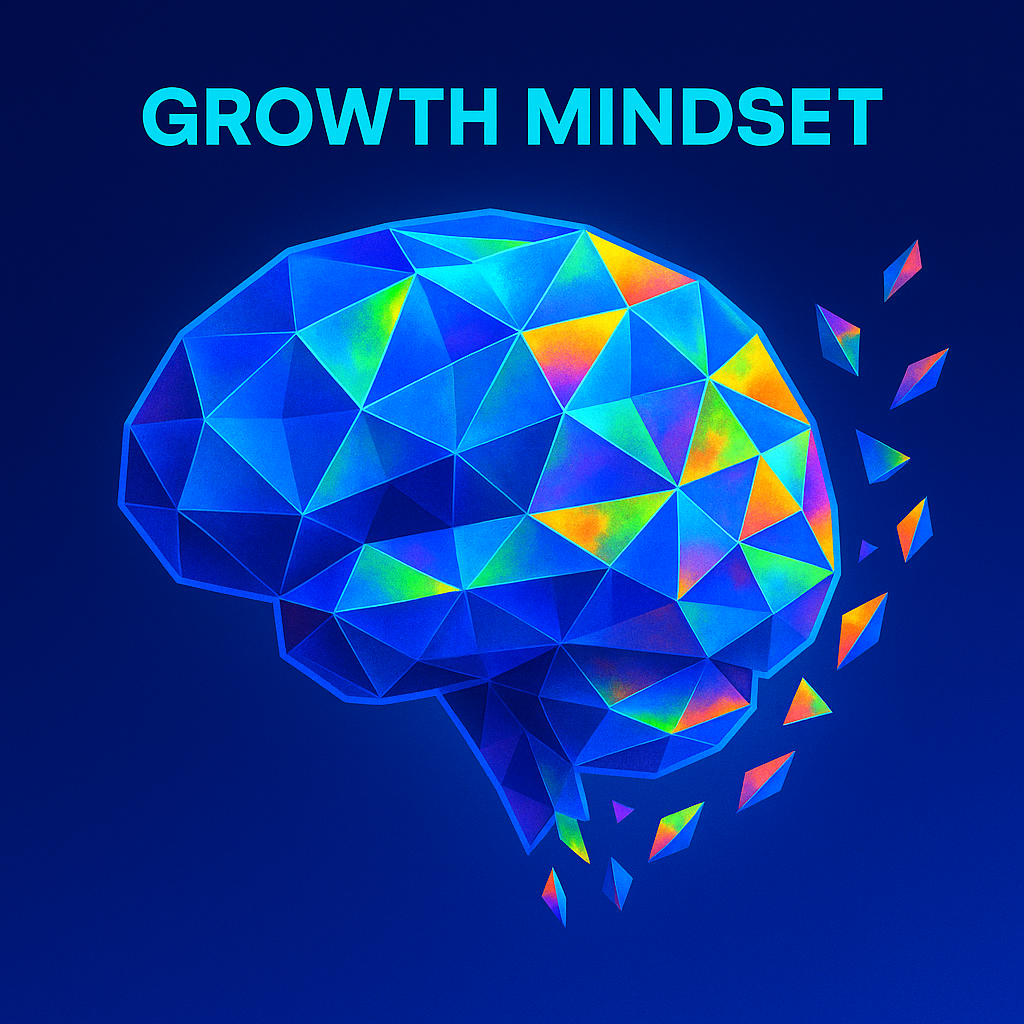
One of the most powerful ideas you can learn is that your abilities aren’t fixed. They can be developed, improved, and strengthened with effort. That belief – the growth mindset – changes everything. It turns challenges into training, failures into feedback, and effort into progress. Neuroscience shows that when you keep learning and practicing, your brain literally rewires itself through neuroplasticity. Every time you push through something difficult, your brain adapts and builds new pathways. You’re not stuck where you are – you’re capable of change, one step at a time.
Growth vs. Fixed Mindset
According to Carol Dweck, who coined the term Growth Mindset, we all have both voices inside us — a fixed mindset voice and a growth mindset voice. The goal isn’t to delete one, but to strengthen the growth one over time.
You can see the difference everywhere:
The Results of a Growth Mindset
The data is clear: people who believe they can improve actually do. In one of Carol Dweck’s landmark studies, students who were taught that intelligence could grow through effort saw their grades increase by 25–30% compared to those with a fixed mindset. In another study by Blackwell et al. (2007), students with a growth mindset showed three times the academic improvement over a single semester.
In the workplace, Microsoft found that teams adopting a growth mindset culture achieved 47% higher productivity and 34% more innovation. In sports psychology, athletes with a growth mindset display greater persistence, faster skill recovery, and higher long-term performance. Across fields, the pattern holds: people who stay curious, open, and willing to learn consistently outperform those who play it safe.
How to Reframe Setbacks with Openness and Kindness
When something goes wrong, people with a growth mindset don’t hide it or beat themselves up. They pause, stay kind to themselves, and ask the right questions:
Take public speaking as an example. Someone with a fixed mindset might think: “I’m just not good at presenting.” But someone with a growth mindset says: “I’m learning how to present better each time I do it.” Then they dig deeper – “Did I rush through key points? Did I sound nervous? Could I practice in front of a friend or record myself next time?”
A growth mindset thrives on curiosity instead of criticism. That curiosity leaves space for improvement, while self-kindness keeps your confidence intact. When you meet challenges with openness rather than judgment, you give yourself the chance to grow.
You’re not expected to think this way all the time. Noticing even one fixed thought and gently reframing it is already progress.
How to Reframe Fixed Thoughts into Growth Thoughts
Situation – Work or School
Situation – Fitness or Body
Situation – Relationships & Social Life
Situation – Personal Growth
Each time you make this shift, you rewire your thinking. Bit by bit, optimism, patience, and resilience start to replace frustration and doubt.
Why It Matters
A growth mindset helps you take ownership of your future. It gives you the belief that improvement is always possible and that every challenge holds a lesson. Over time, that belief builds quiet confidence – not the loud kind that needs validation, but the steady kind that keeps you moving forward.
In the Konstruct App this mindset sits at the core of everything. Every shard, every challenge, every reflection exercise helps you grow through action. Confidence comes from progress – from choosing to learn, adapt, and keep building, one step at a time.